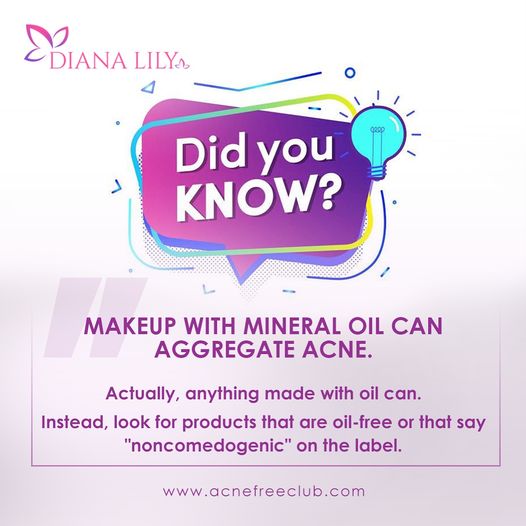One primary concern regarding mineral products for acne-prone skin is the presence of ingredients that can aggravate existing breakouts or even cause new ones. Some minerals, such as bismuth oxychloride, can irritate the skin and cause redness, inflammation, and itchiness—all factors that can exacerbate acne. Therefore, it is critical to pay close attention to the ingredients before making a purchase, especially for those with acne-prone skin.
Not all mineral products are created equal, and some may even prove to be comedogenic, meaning they can clog pores and promote the formation of acne. While a product might be free from synthetic chemicals and fragrances, its mineral content could still be a cause for concern. Be sure to look for non-comedogenic options designed specifically for acne prone skin to mitigate the potential for adverse reactions.
Impact of Mineral Products on Acne
Mineral products are often marketed as a healthier alternative to traditional cosmetics. However, for individuals with acne-prone skin, these products may not be the best choice.
Comedogenic Effects of Minerals
Comedogenic refers to the potential of a substance to clog pores. Some minerals used in cosmetics are comedogenic and can lead to acne flare-ups. For example:
- Talc: Talc is a common ingredient in mineral makeup; it may clog pores and cause breakouts. People with acne-prone skin should opt for talc-free products.
- Bismuth oxychloride: Though it imparts a silky texture to makeup, bismuth oxychloride can be irritating to acne-prone skin and may worsen existing breakouts.
- Silicones: Often found in primers and foundations, silicones can create a barrier on the skin, trapping bacteria and oil, and ultimately causing acne.
When considering mineral products, look for non-comedogenic ingredients, such as:
- Zinc oxide
- Titanium dioxide
- Mica
These minerals are less likely to cause breakouts and may be more suitable for acne-prone skin.
Skin Irritation and Inflammation
In addition to comedogenic effects, certain minerals can cause skin irritation and inflammation, which can exacerbate acne. For instance:
- Mica: Though mica is generally non-comedogenic, it may cause irritation and itchiness in some individuals, leading to scratching and potential breakouts.
- Synthetic colorants: While not technically minerals, synthetic colorants are often used in mineral makeup. Some of these colorants, like D&C Red 40, can cause inflammation and worsen acne.
To minimize potential irritation from mineral products, opt for those free of synthetic colorants or those containing gentle, skin-soothing ingredients.
In conclusion, while mineral products offer certain benefits, acne-prone individuals should carefully evaluate the ingredients to avoid comedogenic effects and skin irritation. By selecting products with non-comedogenic minerals and soothing components, one can enjoy a healthy, radiant complexion without aggravating acne.
Acne-Friendly Alternatives and Skincare Tips
Choosing Non-Comedogenic Products
It’s essential for individuals with acne-prone skin to be mindful of the products they use. Opt for non-comedogenic products, as these don’t clog your pores. When shopping for cosmetics, look for labels that specify they are non-comedogenic or oil-free.
Some common non-comedogenic ingredients include:
- Salicylic acid
- Glycolic acid
- Niacinamide
- Zinc PCA
Make sure to avoid heavy and oily products, as they can contribute to acne formation. For example, choose lightweight lotions or serums labeled as oil-free instead of thick creams.
Importance of Routine Skin Evaluation
A regular skin evaluation is vital for maintaining clear and healthy skin, especially for those with acne-prone skin Acne Free Club offers personalized skin assessments to help individuals understand their skin type and any underlying issues causing breakouts. With this information, we can create a customized skincare routine that effectively targets acne-causing problems.
Some essential skincare tips for acne-prone skin include:
- Cleansing: Use a gentle, non-comedogenic cleanser twice a day to keep your skin clean and free of dirt and excess oil.
- Exfoliating: Avoid abrasive scrubs and instead opt for chemical exfoliants like AHA or BHA, which can help unclog pores and promote cell turnover.
- Moisturizing: Even when dealing with acne-prone skin, don’t skip out on moisturizing. Look for an oil-free, non-comedogenic moisturizer to keep your skin hydrated without causing breakouts.
- Sun protection: Daily use of a broad-spectrum, non-comedogenic sunscreen is a must to protect your skin from harmful UV rays, which can exacerbate acne.
Remember, a consistent skincare routine and regular skin evaluations are crucial in managing acne-prone skin. By following these tips and using acne-friendly alternatives, you can take better care of your skin and maintain a clearer, healthier complexion.

